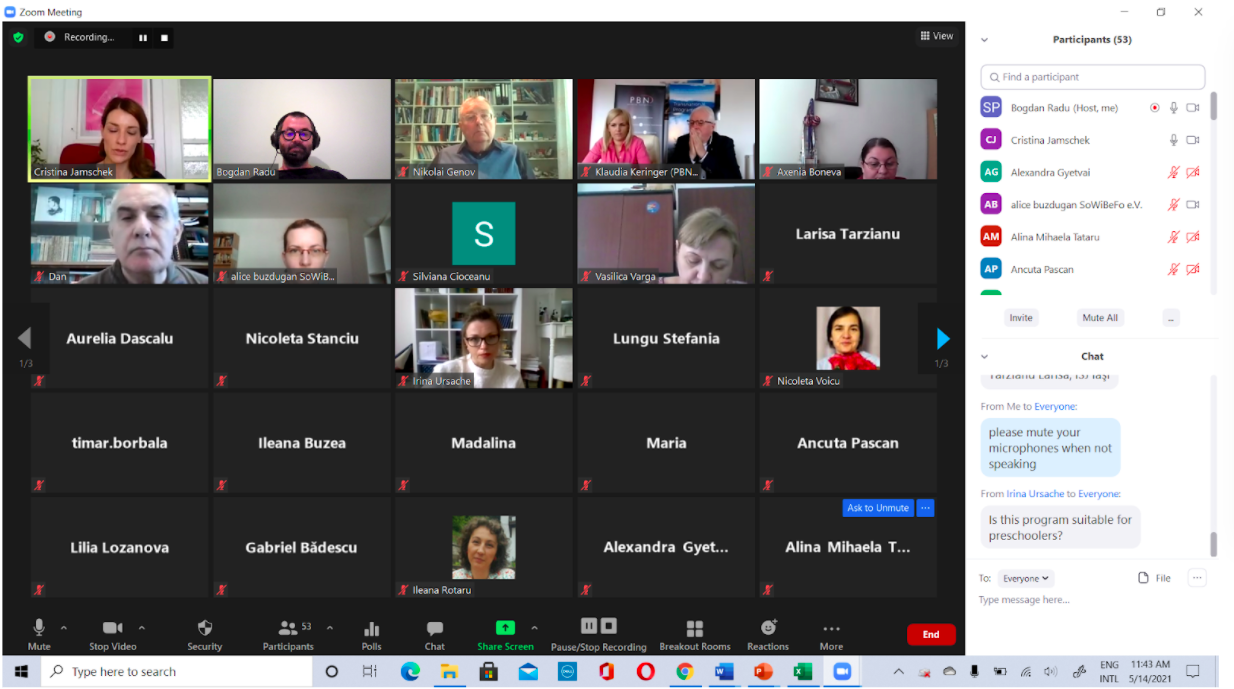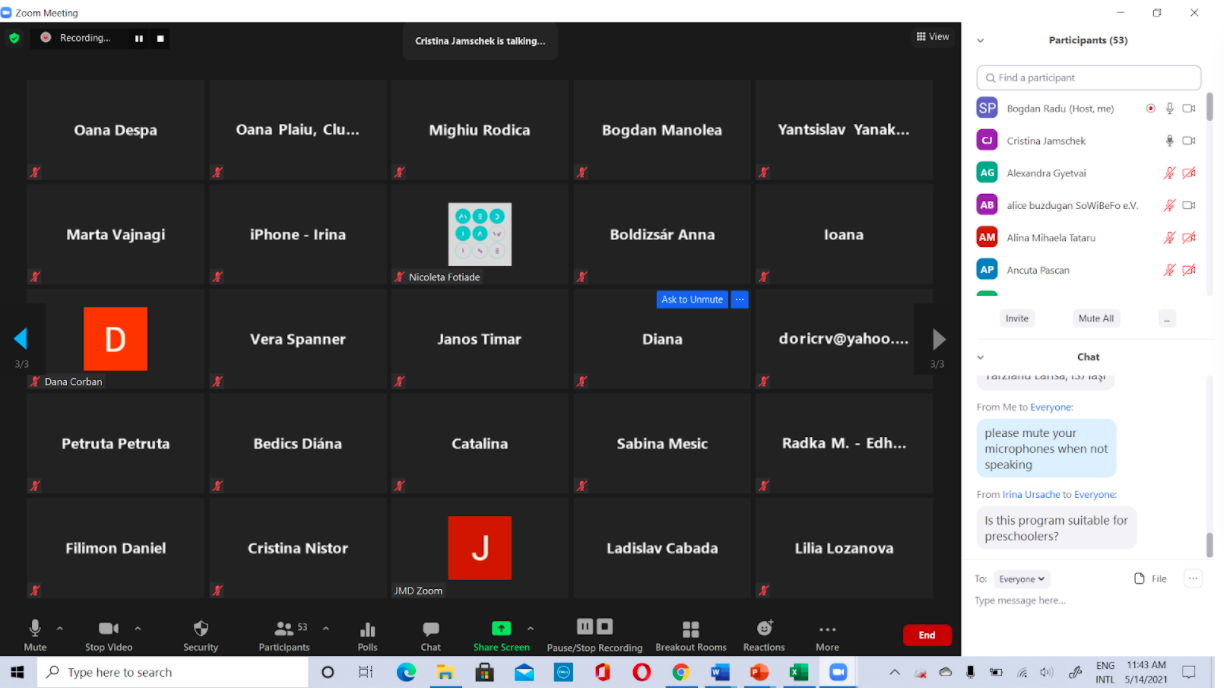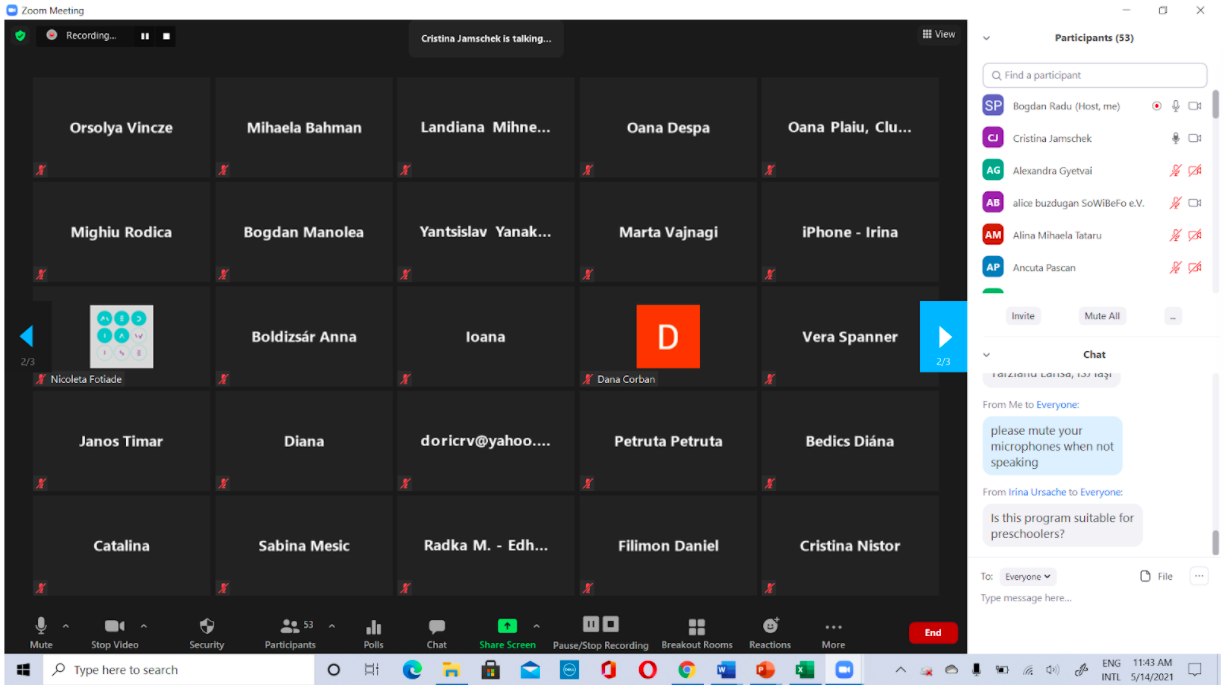MELIA Observatory - Workshop on Media Literacy and Media Education in Bulgaria, Hungary and Romania
07-06-2021
On May 14, 2021, Babeș-Bolyai University BBU (Cluj, Romania), together with the Association Centre for Public Innovation CPI (Bucharest, Romania), the Research Center for Regional and Global Development REGLO (Sofia, Bulgaria), the Budapest Chamber of Commerce and Industry BPPI (Budapest, Hungary) and the Pannon Business Network Association PBN (Szombathely, Hungary) organized a workshop on Media Literacy and Media Education in Bulgaria, Hungary and Romania. The workshop was attended by more than 50 people, most of them either teachers or civil society organization representatives.

The discussions centered upon country specific presentations, offering an overview of current media literacy landscapes and delivered by teams of specialists. Lilia Lozanova from the Sumen University “Konstantin Preslavski” in Bulgaria offered valuable insight regarding Bulgaria’s vibrant landscape of projects focusing on media literacy aiming to counteract the damaging effects of increasing disinformation processes. She emphasized 3 projects implemented by various organization in Bulgaria, targeting mostly school age children and youth and their teachers, and either fighting fake news and disinformation or creating a didactic base for teachers to rely upon when engaging in offering media literacy classes or trainings.
Hungary was represented by Borbala Timar from the Televele Media Education Association, by Tibor Lovass from the National Association of Local Televisions and by Klaudia Kerringer from PBN (Pannon Gazdasági Hálózat Egyesület). Borbala presented the history of media literacy initiatives in Hungary and also offered important information about the National Media and Infocommunications Authority. She also discussed at length about the Digital Child Protection Strategy of Hungary, and closed by presenting a few civil society led projects on media literacy, implemented by Televele Media Education Association and other nongovernmental organizations. Tibor Lovass and Klaudia Keringer offered more background information about media literacy and media freedom in Hungary, especially from a legal and policy perspective, and then focused on presenting projects that can be considered best practices in the field of media literacy – projects aiming to raise awareness among the society about existing issues such as safety, discrimination of certain underprivileged categories, or fake news.
Bogdan Radu from Babeș-Bolyai University and Cristina Jamschek from the Center for Indepent Journalism represented Romania.
Many of the presentations emphasized the importance of media literacy especially from the perspective of democratic political culture and behavior. Gabriel Bădescu from Babeș-Bolyai University, Romania, presented very interesting data regarding comparative media literacy rates in Europe and also referred to the previously mentioned connection between media literacy and the skills and values associated with democratic citizenship, especially in the case of the youth.


